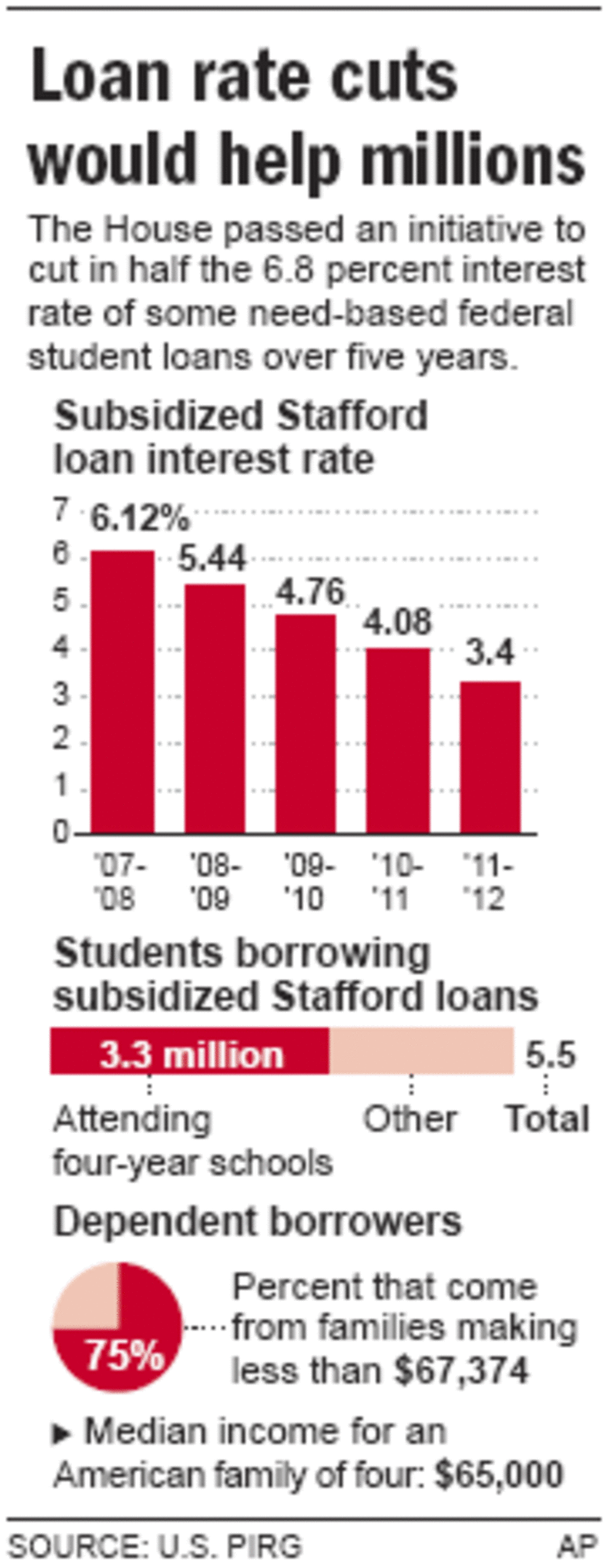The new Democratic-led U.S. House kept another campaign promise Wednesday and voted to help financially strapped students cover the soaring cost of college.
The House set aside objections from President Bush's administration as well as concerns by lenders and passed a bill to cut in half the interest rate on need-based federal student loans over five years to 3.4 percent.
"This legislation will be a vital first step toward helping lower college costs for millions of low- and middle-income students," said California Democratic Rep. George Miller. He is a chief sponsor of the measure that now goes to the closely divided Democratic-led Senate for an anticipated battle.
The change would help an estimated 5.5 million students who get need-based federal loans.
The government pays the interest that accrues on those loans while students are in college. Students pick up the payments after they leave school.
The rates would drop from 6.8 percent to 3.4 percent in stages over a five-year period under the House proposal. That would cost nearly $6 billion, according to the Congressional Budget Office.
Offsetting costs
To avoid increasing the deficit, the bill's cost would be offset by reducing the yield on college loans the government guarantees to lenders and cutting the guaranteed return banks get when students default. Banks also would have to pay more in fees.

Though the House has approved the bill, its future is uncertain beyond that. The Bush administration and some top Republican lawmakers oppose it. Sen. Edward Kennedy, D-Mass., head of the Senate's education committee, plans to pursue broader education legislation that addresses the proposed interest rate cut.
Democrats, who took over Congress this year, are trying to make good on a campaign pledge. However, the plan has been scaled back.
During last year's campaign season, Democrats did not spell out that the cut they were talking about passing in the first 100 hours of the new Congress would only affect need-based loans. They also pledged to lower interest rates for parents who take out college loans for their children, and said they wanted to increase the maximum Pell grant award from $4,050 to $5,100. Pell grants go only to the neediest students and do not have to be paid back.
California Democratic Rep. George Miller, chairman of the House committee on education, said lawmakers plan to address those issues later.
Pros and cons
California Rep. Howard "Buck" McKeon, the highest-ranking Republican on the education committee, criticized Democrats for considering the legislation without hearings. He also said he worried the cuts could lessen the services and benefits students receive.
McKeon noted Congress cut $12 billion from the student loan program last year as part of a budget bill.
"If we make it so unattractive to be in the student loan business, they'll go into the car business," McKeon said of lenders.
Luke Swarthout, who lobbies on higher education issues for the U.S. Public Interest Research Group, said the industry is highly profitable and can sustain this round of cuts.
"This is one of the most heavily subsidized and lucrative industries," he said. "These lenders receive guaranteed profits with virtually no risk."
The House bill is H.R. 5.